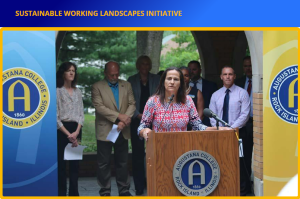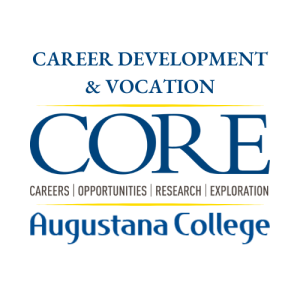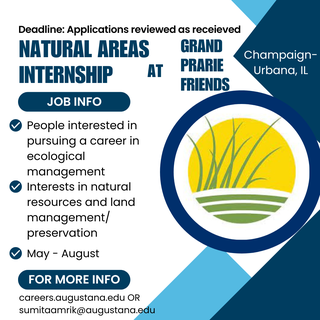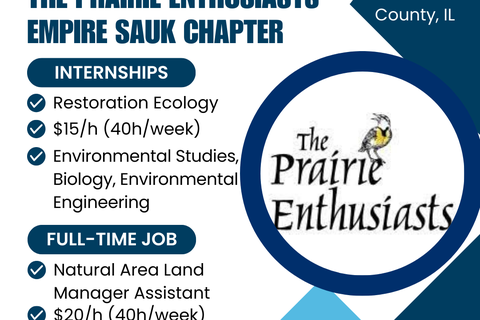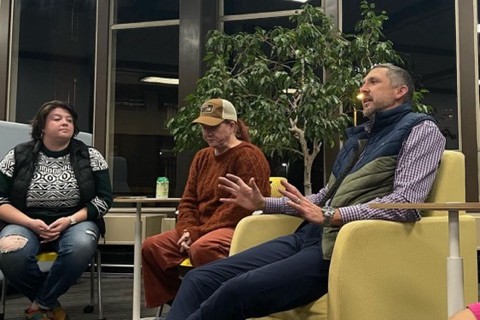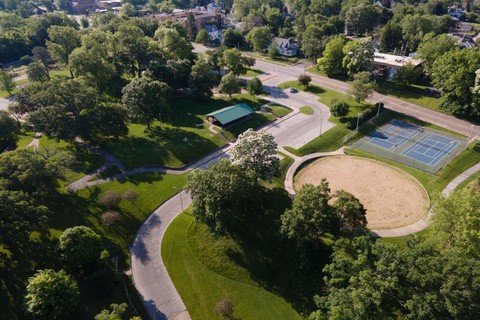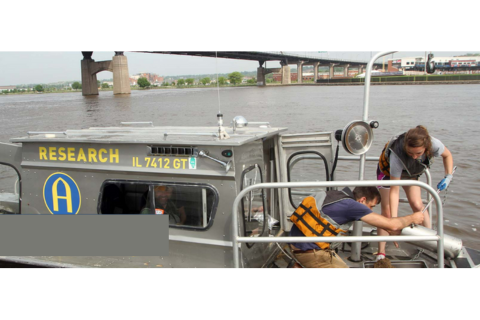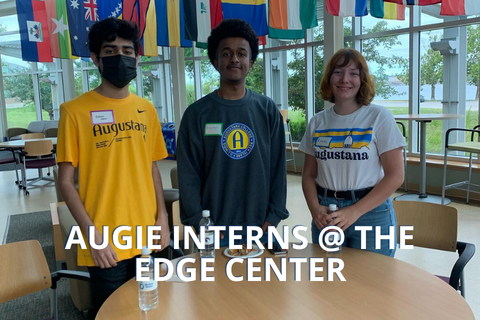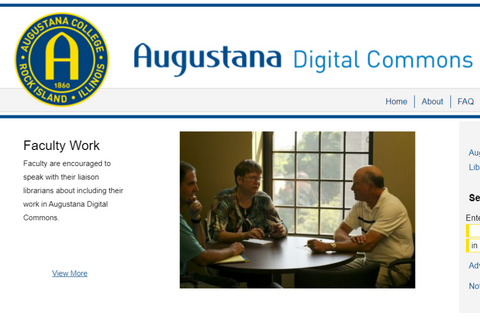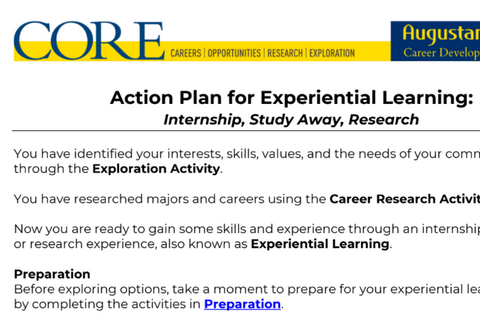The UMC works with local communities to help solve short- and long-term problems those communities face. The UMC engages students and classes from many fields in projects related to transportation, economics, landscape, and urban forests, public health, and issues related to the health and sustainability of communities. Through the UMC, students can propose or continue their individual or group research through internships and special projects.
In past years the UMC partnered with 4 different cities to work on projects such as:
- Developing management recommendations for restoring portions of city parks
- Researching best practices to reduce damage from flooding
- Completing a greenhouse gas emissions inventory
- Using music, theatre, and the arts to bridge diverse communities (Rock Island)
- Meet Dr. Michael Reisner
- Email Dr. Michael Reisner
Upper Mississippi Center
Partnerships through the Years
